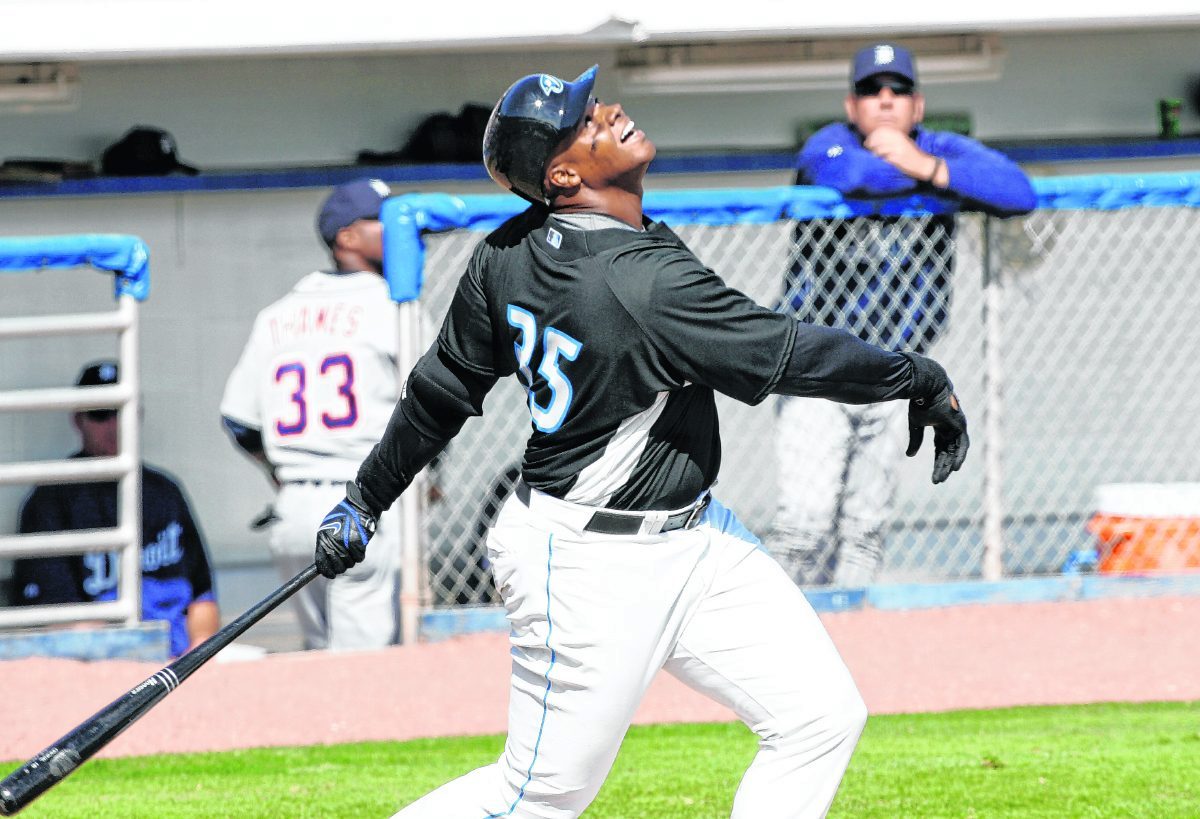
It may only be temporary, but 47 years after the American League introduced the designated hitter to Major League Baseball, National League managers will be able to massage their lineups with an extra hitter.
As part of the resumption of play for this 60-game coronavirus-altered big-league season, National League teams will have the opportunity to employ an extra hitter in all games and pitchers will get a bye from awkwardly slouching into the batter’s box for too many embarrassing strikeouts.
The designated hitter was created to provide more offensive oomph at the start of the 1973 season, but the NL chose to stick with old-fashioned tradition and has never wavered, even as some of the most spectacular offensive players of the last half-century demonstrated the DH’s value.
Hall of Famers (and soon-to-be Hall of Famers), such as Seattle’s Edgar Martinez, the Red Sox’s David Ortiz and the White Sox’s Frank Thomas, were great beneficiaries of the rule. They were prized for their bats, not their gloves.
[sc:text-divider text-divider-title=”Story continues below gallery” ]
They saved the grimacing fan bases of many teams the disappointment of pitchers pathetically flailing at 98 mph fastballs and leaving the bases loaded. The fact was spectators preferred seeing the big dudes hit big home runs over distant fences than watch the pitchers do themselves harm because of hitting incompetence.
Martinez, now in the Hall, was so popular with the Mariners a street was named after him in Seattle. Thomas, "The Big Hurt," flexed his muscles and put the ball into orbit at a Hall of Fame clip. Nobody of the last decade or so was such a big-game clutch hitter as Ortiz, who helped the Red Sox win pennants and World Series. The only reason he is not in the Hall of Fame is because he hasn’t become eligible yet. Coming soon.
The designated hitter made its debut April 6, 1973, in a game between the New York Yankees and the Red Sox. On the mound was Luis Tiant. In the batter’s box was Ron Blomberg, the first DH in history. Tiant walked Blomberg.
Blomberg, who is Jewish, had fun with his distinction. He called himself "Designated Hebrew," writing a book with that title. Blomberg, who persevered for eight seasons in the majors, was never in the class of Martinez, who won two batting titles, Thomas, who clubbed 521 home runs, or Ortiz, who bashed 541 homers.
But he was a good enough player to bat .293. Blomberg, now 71, was always proud to be known as the first DH. In his book, Blomberg wrote of that first DH plate appearance, "That’s when I became part of baseball history."
He noted that "the circumstances were accidental." By that, Blomberg meant the Boston-New York game started early in the day on the East Coast, so he came to the plate to hit before other players did so later on the same day.
It was still not a guarantee for Blomberg, though. He was the slated sixth hitter, so others had to get on base ahead of him for him to come up in the first inning at all. Boston’s Orlando Cepeda, the Red Sox’s DH, was that team’s scheduled fifth hitter in the bottom of the first and might well have beaten him to the batter’s box if the Yankees hadn’t staged a little rally of three runs.
When Blomberg got his first inning turn, the Yankees had the bases loaded with two out.
The debates were not as ferocious as they were when income tax laws were imposed, but the designated hitter was not immediately universally popular. Some traditionalists were protective of the old ways. Some people did not understand how it would work.
Adding the DH (which in some quarters was originally termed the designated pinch hitter, which is really what it is) was a little bit like adding the three-point shot to pro basketball. In the beginning, some coaches did not know what to do with it or how to maximize its value. But the three-pointer and the DH have most assuredly provided offensive punch.
National League managers can approach this experimental period in one of several ways. But if they are wise and they want to win, they will apply the same degree of analytical study to ways the DH can pay off as they do with all of the other statistics that are heaped upon them nowadays.
Or they can just sit back and dream of having Frank Thomas, David Ortiz or Edgar Martinez to scratch into their lineups. Alas for him, Blomberg will probably come to mind a lit bit farther down on the wish list.
